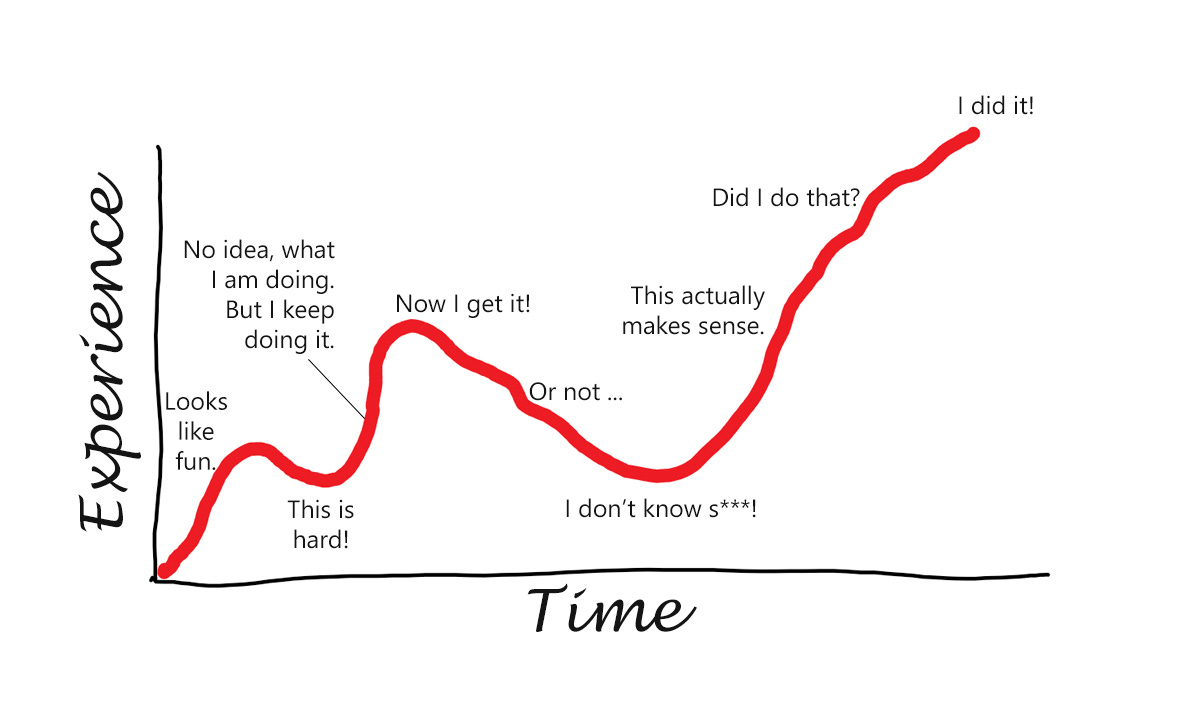Rust and steep learning curves
Should I choose something like Rust for my next project?
🧐 Is Rust a foolish choice for building a startup or basing a new project on? It turns out that it depends, and it's not always straightforward to evaluate.
✅ In this really important and helpful article, the author asks you to consider measuring a technology’s usefulness (using Rust in this case) not only by the time it takes engineers to learn it (also called the learning curve), but more by the actual productivity of using it over the project's entire lifetime. Brilliant.
Take learning and using Rust as an example - it can be a bit steep (understatement) to learn, but it’s fundamental nature of correctness and safety prevent a myriad of bugs that you will experience writing your project in other languages.
This is painfully obvious if you compare C & C++ vs Rust. But it's even true and worth considering for "easy" languages like Javascript, Python, Ruby, etc. Consider your needs. You might prototype something in an easy language, find solid user/product/market fit, throw the prototype away (or parts of it), and rewrite in Rust. Or it may even make sense to write it all in Rust from the start because of the kinds of things Rust forces you to avoid as this article points out.
🚀 Well worth a read and well worth considering for your next project when you're trying to decide on the right language and tech stack to build it on.
Because you’re not just deciding the technical pieces, you’re deciding what kind of engineers you want to work with.
Thanks to caleb bourg for sharing it with me.
Please enjoy!



